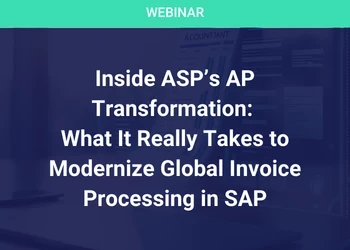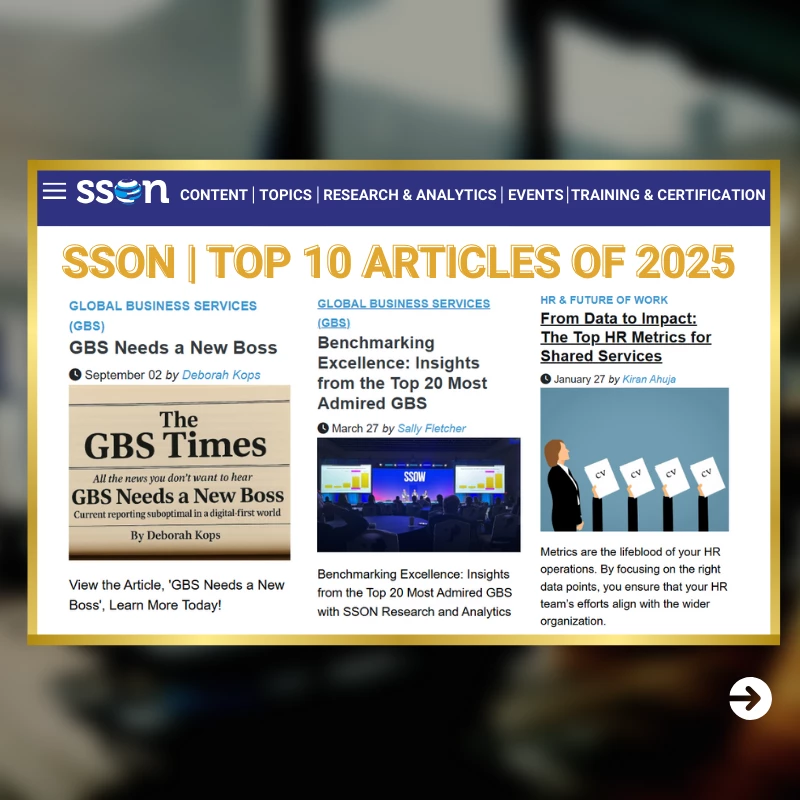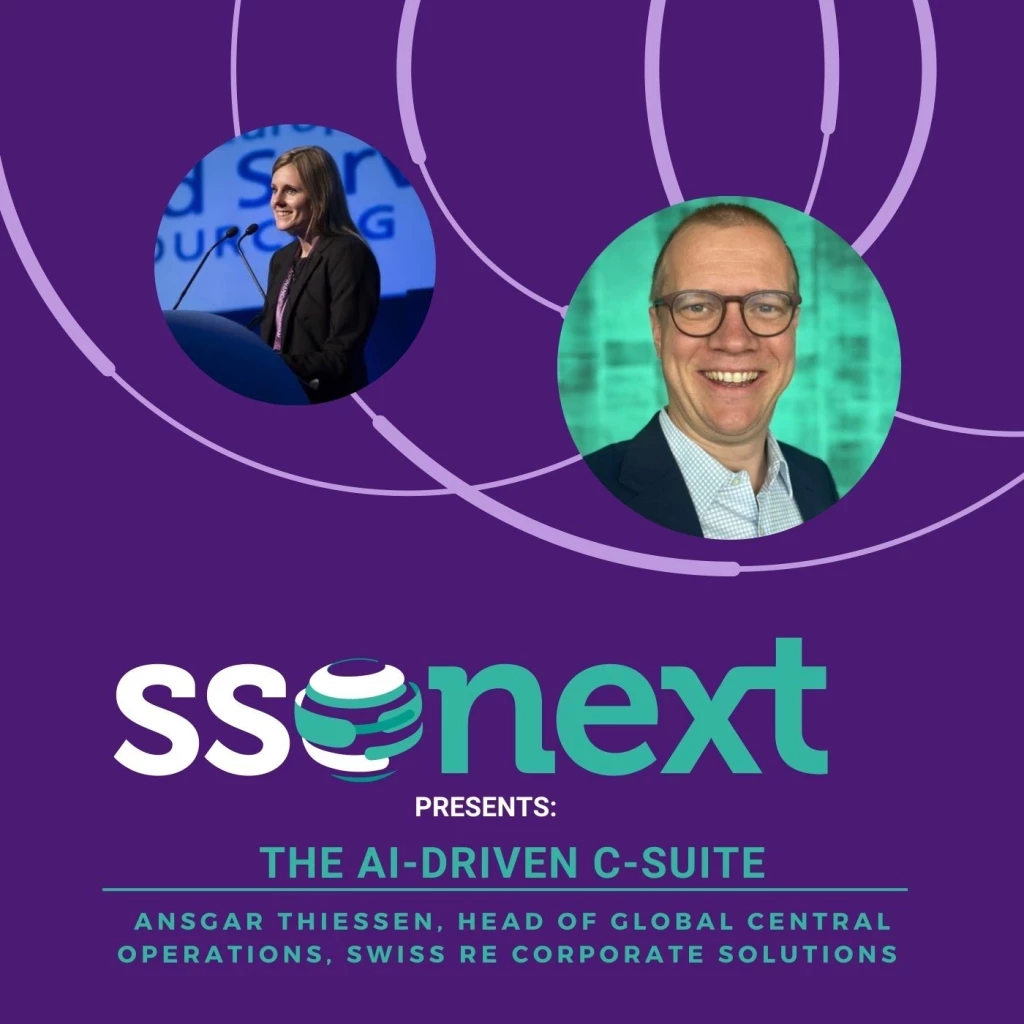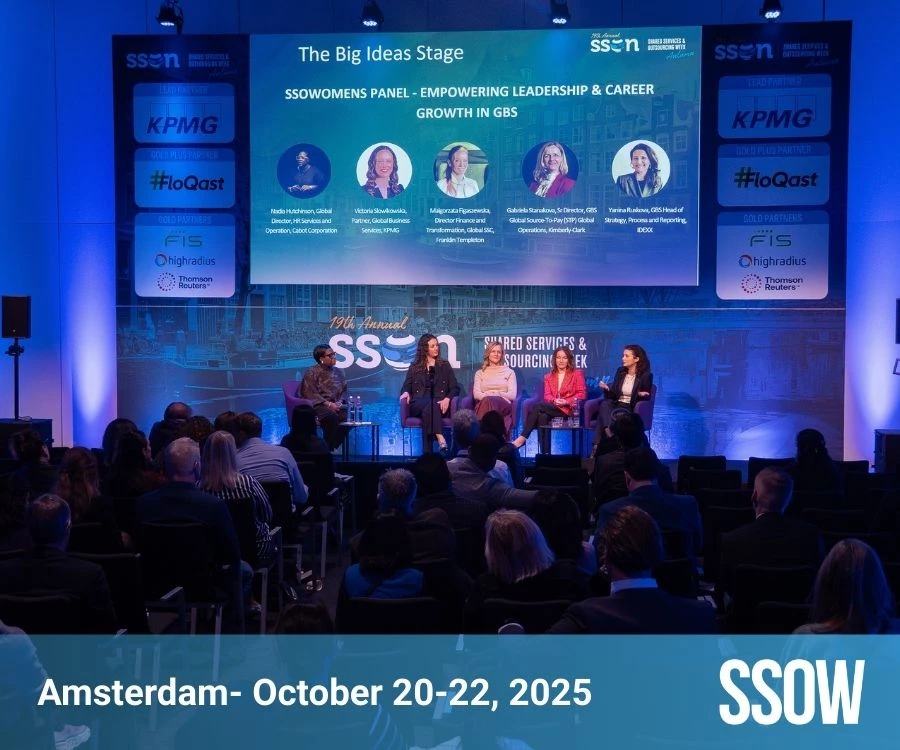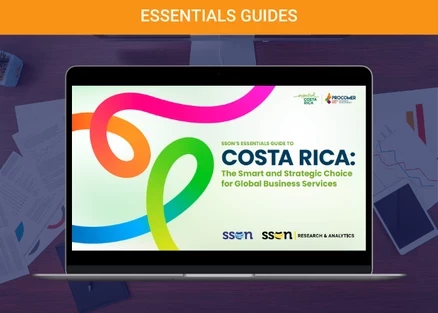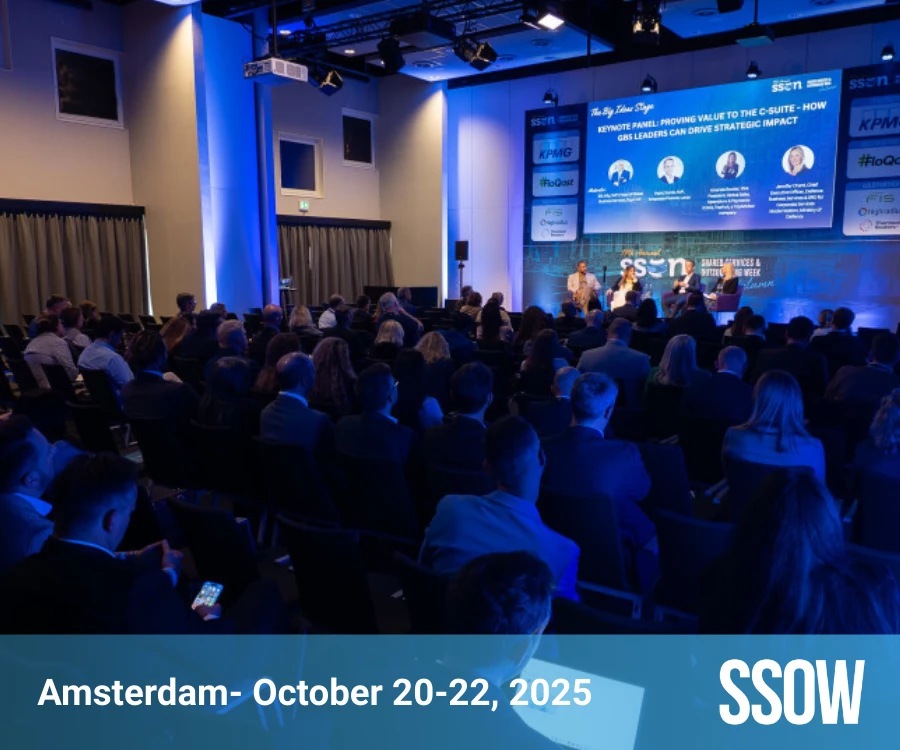
Rethinking Location Strategy: Ask the Expert
Agentic AI, Tariffs, the Back-to-Office debate, there are a myriad of trends shaping the business world in 2025. But how are they impacting the Global Business Services space? Are they world-defining or something that will pass us by? At the Shared Services and Outsourcing Week Europe 2025, SSON spoke to some of the world’s best Global Business Services leaders about their take on big business trends. This time, we sat down with Lars Hölzer, Head of the Global Business Services and Business Process Management at Fresenius Kabi, to understand how one leading organization is approaching its global footprint in this shifting landscape.
Factors such as rising costs, global tariffs, and social or economic risks mean that many organizations in 2025 are looking again at their geographic footprint. Is location something that GBS should also be looking at, and why?
As businesses contend with rising operational costs, talent shortages, and trade complexities, many are reconsidering where their shared services and delivery centres should be based. According to Hölzer, while location is a critical question, frequent moves are rarely the answer. He shares that “the development of shared service and the BPO sector clearly shows some locations where nearly everybody is going, like India or also Eastern Europe, specifically Poland… But once a company has chosen a location, moving isn’t easy.” He explains that “it's rather helpful to the company to build on what you have and to expand your location instead of going to different ones, because this comes with a huge cost and a huge transition effort.” At Fresenius Kabi, the strategy has been to build on existing strengths. With key hubs in Poland, India, and China, the focus is on growing current operations.
What factors should UBS leaders consider when choosing their next location or, indeed, staying in their current location?
For leaders grappling with location strategy in 2025, Hölzer identifies two important factors. “One is what the competition is doing? Secondly, what kind of talent do I find on the market?” He goes on further to state that organizations should follow talent flows, especially in industries where technical knowledge is critical. “Of course, you have all the competition around, but the market is huge, and this is something that I would consider first to meet the requirements of the market, and that translates to your own company.”
Is AI a game-changer for Global Delivery?
While AI is disrupting many areas of business, Hölzer believes its greatest impact on location strategy lies in language processing and workflow simplification. He shares that “the real AI experts are still mostly concentrated in Silicon Valley. So, I would rather focus on integrating tools from major tech firms like Google and Microsoft into our work, rather than reinventing the wheel because this likely will not end up in anything meaningful.”
Which locations are worth considering in 2025? Are there any new or upcoming places that have caught your attention?
Whilst Poland and India remain the top picks and Eastern Europe is close on the contender list, Hölzer also shared that there are emerging markets on the radar, including parts of Latin America and Africa. He recommends monitoring these insights to get the best guidance to assess what is viable and relevant for your organization.
Factors such as AI and automation are affecting location decisions, like making people outsource or offshore less, keeping things close to home, or does it not really affect how you look at it?
Hölzer believes that while AI and automation will change delivery models, they won't eliminate the need for skilled, global teams. He notes that “it will surely affect, especially in terms of language conversion. So, I'm exploring large language models, so that means you get a document in a particular language, like Korean, and you get it translated into English by the AI. Then you have someone to check about the correctness, and you can improve the solution.” The future is a mixture of AI supporting people and not replacing them. Hölzer is confident that this will be a stable direction. To gain more insights from our SSO Network please join us for our upcoming IDP Virtual Summit.










